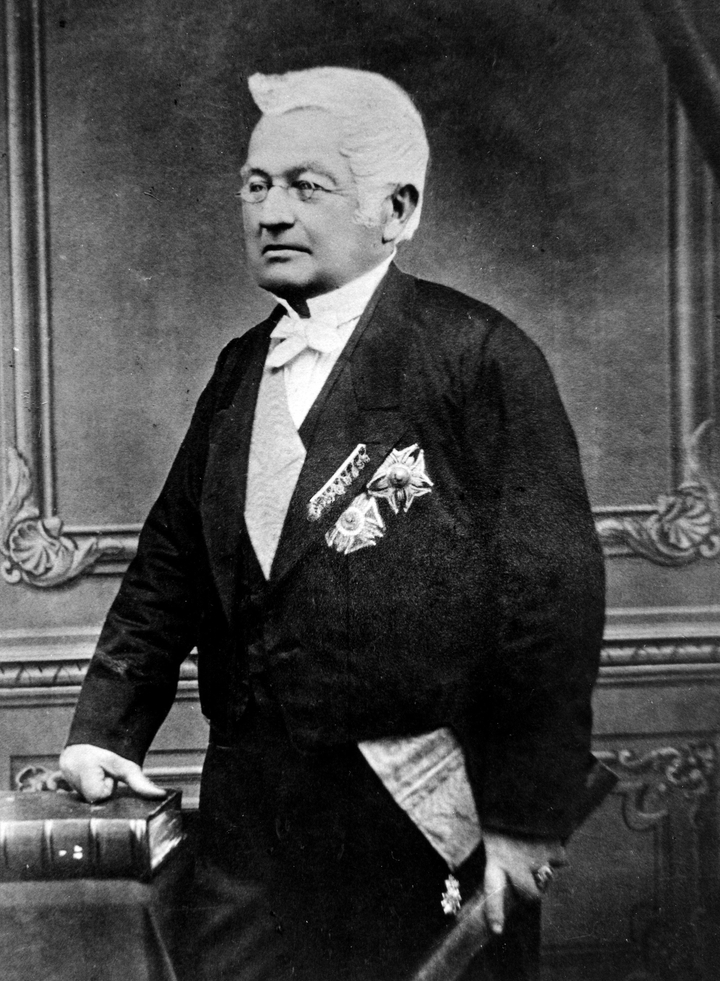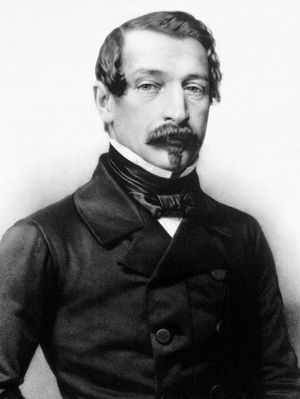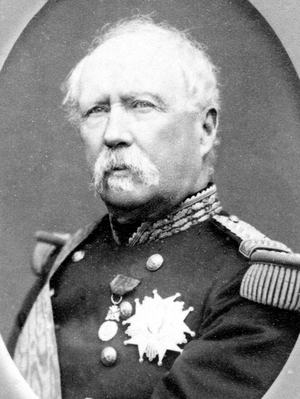
© La Documentation française
14 April 1797
Adolphe Marie Joseph Louis Thiers was born in Marseille.
After completing his studies at a secondary school in Marseille and then a university in Aix-en-Provence, where he obtained a degree in Law, he became a lawyer.
1821
He moved to Paris where he tried his hand at journalism in the columns of the newspaper, Le Constitutionnel.
1823
The first volume of his Histoire de la Révolution Française was published and was very successful.
January 1830
With two associates, he founded the National, a newspaper against the Charles X regime, which launched a protest against the ordinances of July 1830.
27-29 July 1830
During the Three Glorious Days, Thiers was a supporter of Louis-Philippe d’Orléans acceding the throne.
October 1830
He was elected Deputy for Bouches du Rhône and re-elected until 1848.
2 November 1830-13 March 1831
He was Under-Secretary of the State for Finance.
11 October 1832-31 December 1832
He served as Minister of the Interior.
31 December 1832-4 April 1834
He was the Minister of Public Works and Trade.
20 June 1833
He was elected member of the Académie Française.
April 1834
He served as Minister of the Interior a second time.
September 1835
After Giuseppe Marco Fieschi’s attempt to assassinate the King, Thiers had the “September 1835 Laws” passed restricting freedom of the press.
22 February-6 September 1836
He served as Prime Minister and Minister of Foreign Affairs.
1 March-29 October 1840
He served as Prime Minister and Minister of Foreign Affairs.
In disagreement with Louis Philippe regarding Middle East policy (Affair of Muhammad Ali, Pasha of Egypt), he resigned and joined the opposition to Guizot.
1845-1862
He published his Histoire du Consulat et de l’Empire.
February 1848
King Louis-Philippe’s regime ended. Thiers supported the candidacy of Louis-Napoléon Bonaparte for President, believing he could exert his influence.
April 1848
Defeated in his constituency of Bouches du Rhône, he was elected in Le Havre in additional elections.
December 1851
After the coup d’état of Louis-Napoléon Bonaparte, he sought exile in Belgium than England temporarily.
1863
He became a Deputy for Paris.
1870
Against the war with Prussia, he advocated peace.
8 February 1871
He was re-elected Deputy for Paris.
17 February-31 August 1871
The National Assembly, which sat in Bordeaux, appointed him “Chief of the Executive Power”. He made peace with Prussia at the cost of losing Alsace-Lorraine and crushed the uprising of the Commune in May 1871.
31 August 1871
The Chief of the Executive Power took the title of President of the French Republic.
2 September 1871
Thiers created by decree a Vice-Prime Minister.
After the turbulence of the years 1870-1871, he worked on the country’s recovery. He ended German occupation by financing the payment of compensation with two loans, increased taxes and reorganized the military service.
May 1873
He left power, removed from office by an Assembly made up of a monarchial majority, hostile to its design of the conservative Republic.
3 September 1877
He died in Saint-Germain-en-Laye.
also available
Presidents' biographiesUpdated : 14 December 2022

